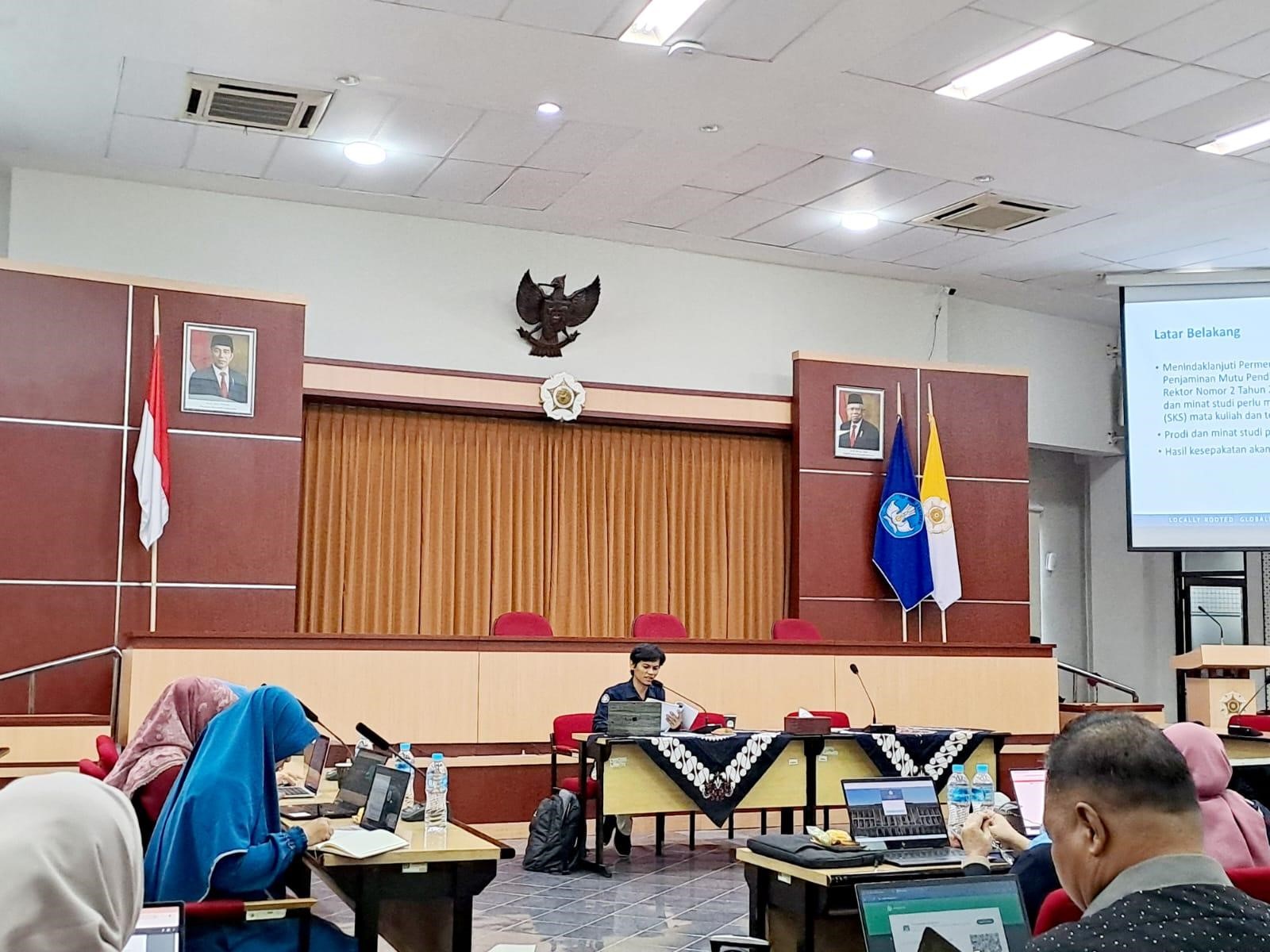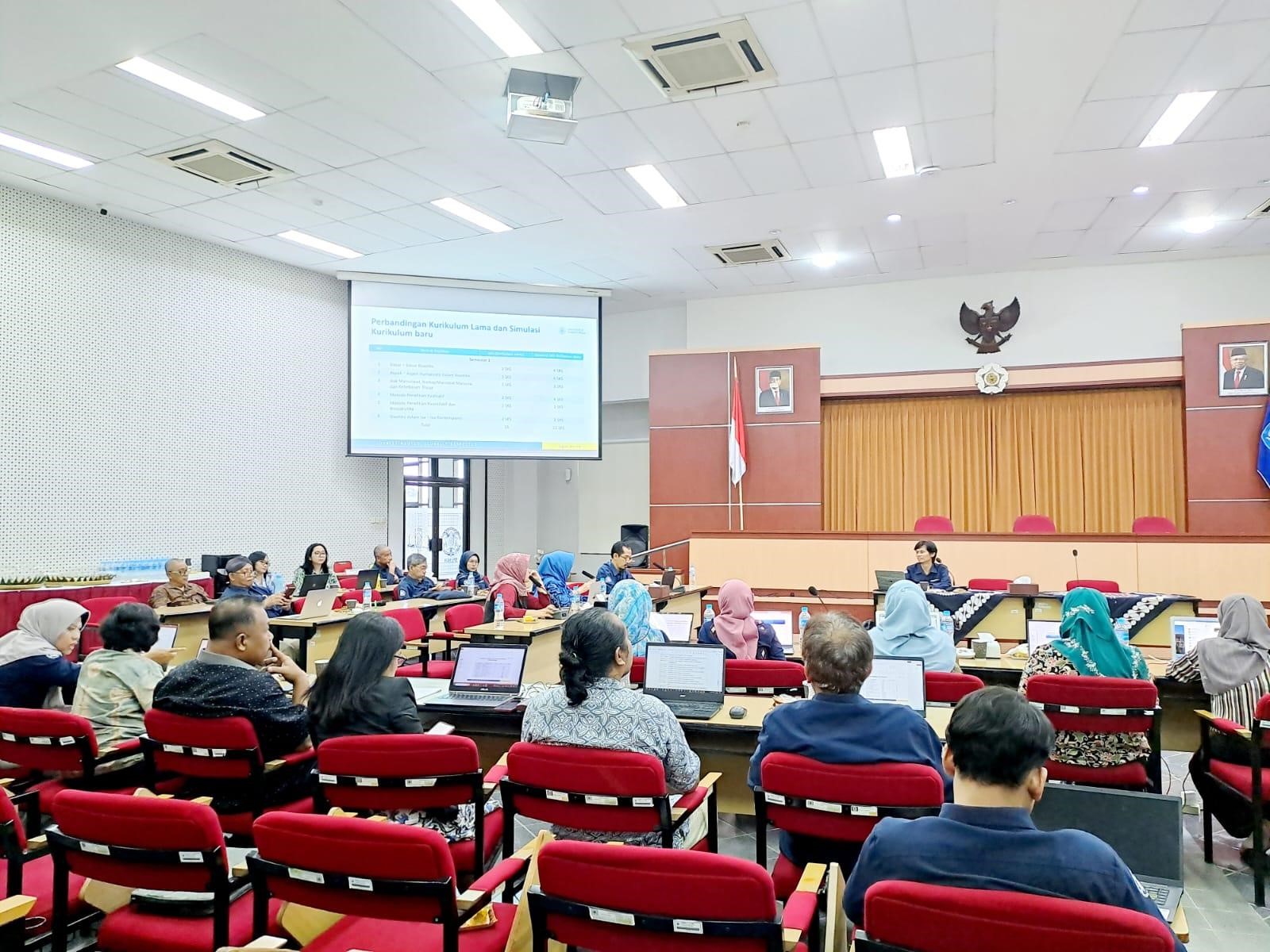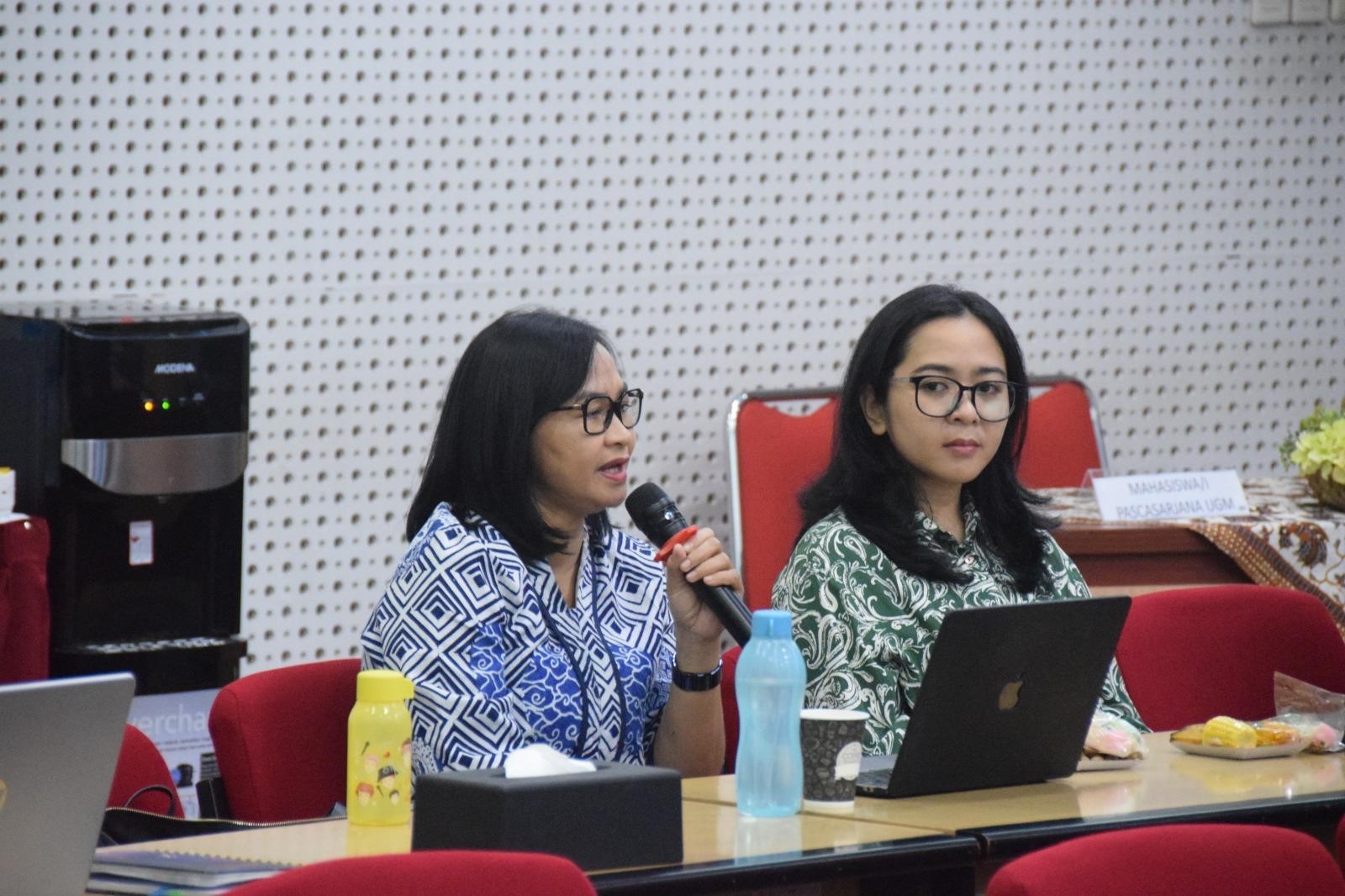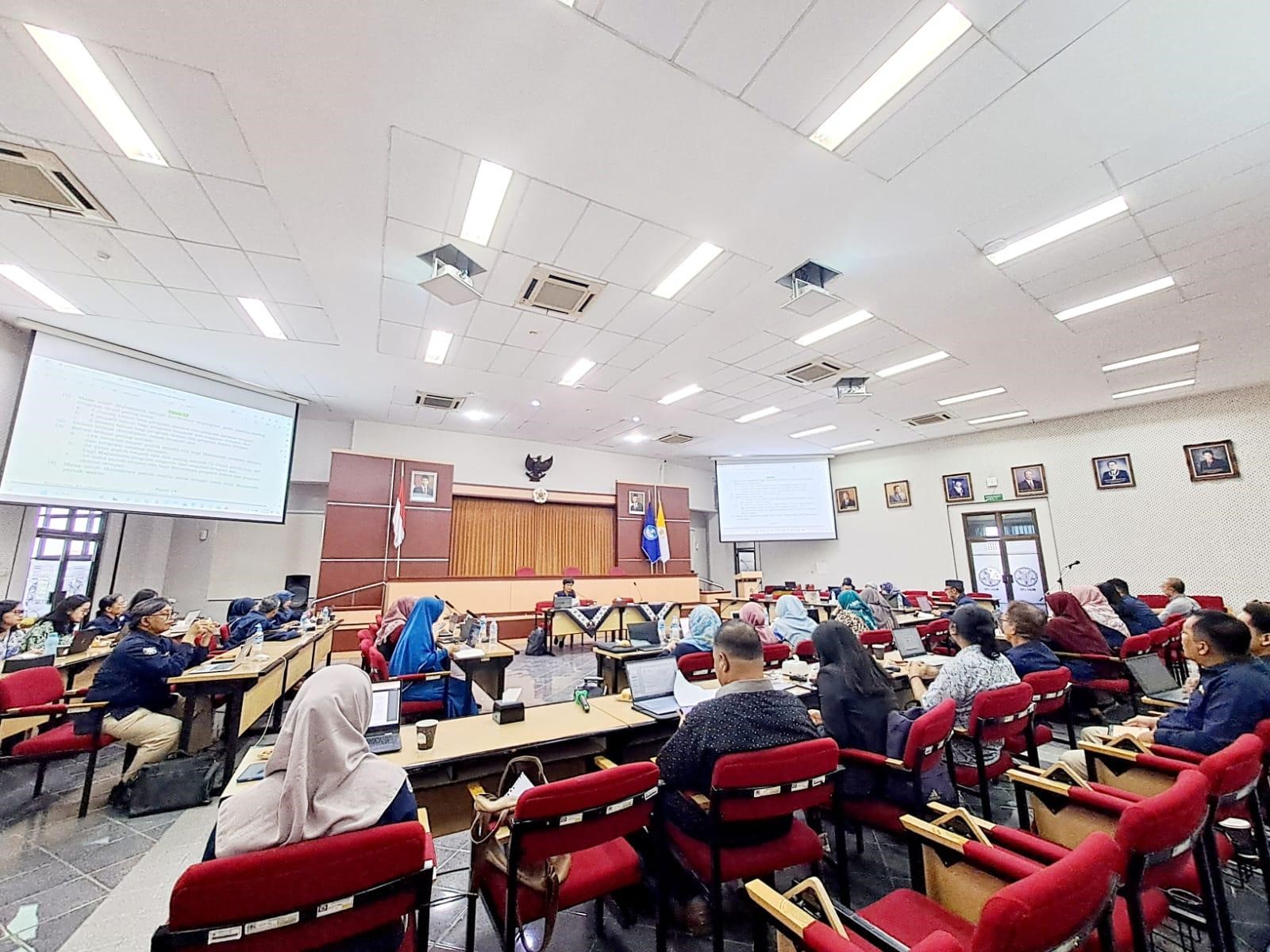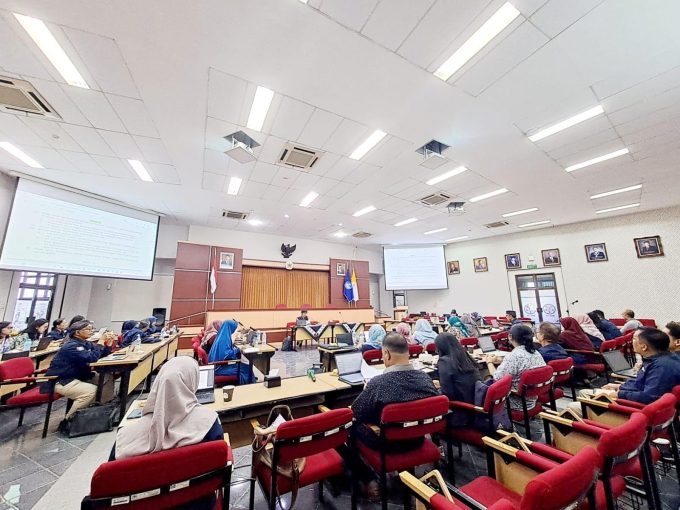
The learning curriculum is a system and arrangement of learning materials that contains plans for teaching and learning activities and serves as a guideline for academic activities, especially lectures in the tertiary environment. Following up on the issuance of regulations regarding education, namely Permendikbudristek Number 53 of 2023 concerning Quality Assurance in Higher Education and Draft Amendments to Chancellor’s Regulation Number 2 of 2023 concerning Education, the Postgraduate School (SPs) of Gadjah Mada University held a curriculum change workshop which was attended by all study programs and study interests at SPs environment at master’s and doctoral levels. The event will take place on June 26 2024 in the Auditorium Room, SPs Unit 1 Building.
Study programs and study interests need to adjust the semester credit unit load (SKS) for courses and thesis/dissertation final assignments. SPs provides provisions for simulating curriculum changes in accordance with Permendikbudristek regulations and draft changes to the Chancellor’s regulations with the simulation for master’s programs consisting of 60-64 credits and doctoral programs consisting of 70-72 credits.
“So far, academic activities such as lectures in class and outside of class (structured assignments and field activities) should have been valued more, but they still need to be simulated because the definition of credits here is different. “Curriculum documents and RPKPS must be adjusted, especially for the context or content of changes in SKS,” said Dr. Widyanto Dwi Nugroho, S.Hut., M.Agr., Deputy Dean for Academic Affairs, Student Affairs and SPs Cooperation while leading the workshop activities.
Each study program and study interest is given the opportunity to present the results of the curriculum change simulation. Also present were Prof. Dr. Tri Kuntoro Priyambodo, M.Sc., Coordinator of Quality Assurance and SPs Accreditation who provided suggestions and input from the curriculum change simulation submitted by the study program regarding the weight of credits.
Various opinions were expressed by each head of the study and quality assurance program. The crucial point, as stated by Mrs. Ratna Noviani, SIP, M.Si., Ph.D., Head of the Master of Culture and Media Studies Program, is that changing credits does not only change minutes, the administration scheme related to remuneration and lecturer PAK must also be changed. adjusted, as well as students’ idealistic understanding of calculating the number of credits with the lecturer’s total teaching time.
Dr. Widyanto gave a good response to the aspirations and opinions expressed by each the lecturer. The results of the agreement on this curriculum change workshop will be implemented starting in the 2024/2025 academic year so that study programs and study interests must immediately prepare the substantive requirements for implementing the new learning curriculum.
Tags: academic curriculum, higher education, SDGs, SDGs 4: quality education
Author: Siti Muyasaroh

